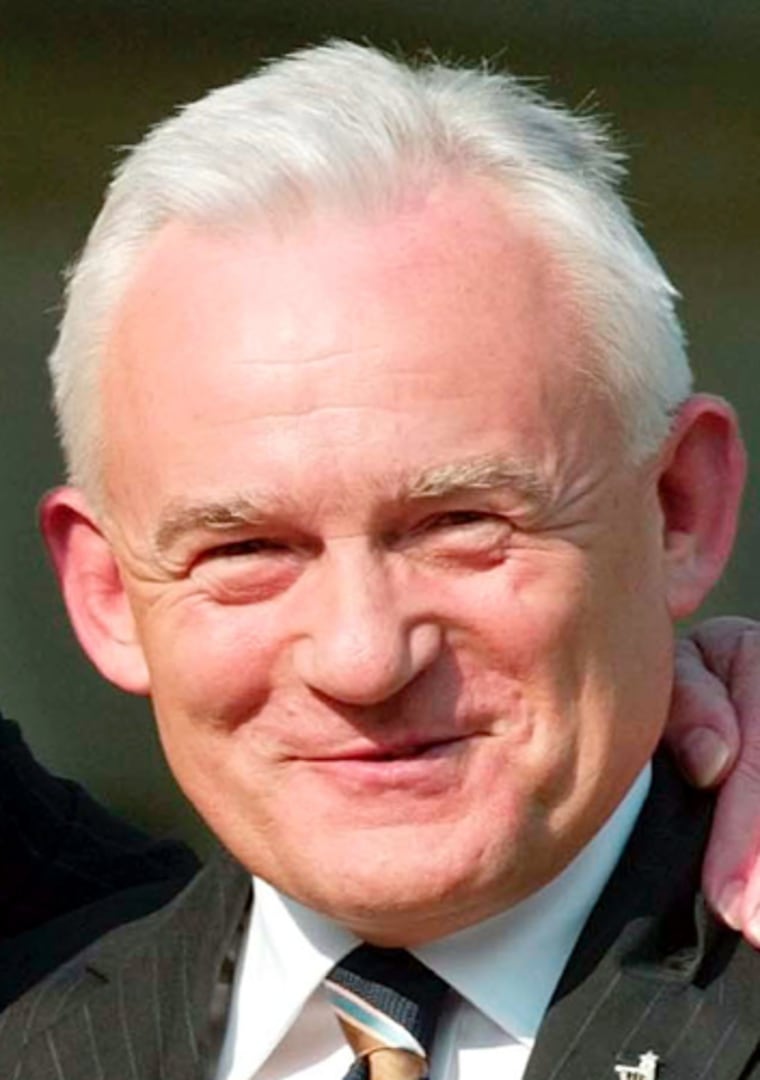Prime Minister Leszek Miller stepped down Sunday after helping lead Poland into the European Union, his government weakened by unresolved economic problems, corruption allegations and a split in the governing party.
After receiving Miller’s resignation, President Aleksander Kwasniewski was to appoint former finance minister Marek Belka as new prime minister in a ceremony at the presidential palace.
Coming the day after Poland’s historic entry into the EU, Miller’s handover to a caretaker underscores the domestic uncertainty afflicting a key U.S. military ally in Iraq.
Miller said he was proud to have attained EU membership, the most important target he set for his administration.
“That goal has been attained,” Miller told Belka, Kwasniewski and other leaders in a large elegant room adorned with chandeliers and green marble columns.
“I am proud to have headed a government which has achieved what seemed impossible,” Miller said.
Following his speech, Miller and Kwasniewski shook hands and hugged.
Kwasniewski has expressed faith that Miller’s departure will help stabilize Poland, but it’s unclear whether Belka will gain the support in parliament to bring down a staggering budget deficit and unemployment that has topped 20 percent.
Key ministers remain in posts
Belka’s appointment is not expected to affect Poland’s continued leadership of a multinational force of around 9,000 troops in Iraq.
Several key ministers will remain in their posts, including Foreign Minister Wlodzimierz Cimoszewicz and Defense Minister Jerzy Szmajdzinski. Their continued presence, along with that of Kwasniewski, are expected to provide continuity.
Belka has also said that he would continue Kwasniewski and Miller’s policy of remaining in Iraq until the situation there stabilizes.
Lower-house lawmakers must vote within two weeks on whether to approve Belka. Rejection would raise the possibility of elections sometime this summer, a year ahead of schedule.
Falling approval ratings
Approval ratings for Miller’s government — the eighth since communism fell 15 years ago — have hit all-time lows as he pushed social spending cuts to prepare Poland for the EU.
Allegations of corruption among government officials and a botched health care reform also undermined Miller.
Belka is respected in the business community for his support of fiscal austerity. But to soften his image, he has promised lately to make jobs and health care reform a priority.
Miller announced March 26 that he would resign, hours after a group of lawmakers from his ex-communist Democratic Left Alliance defected to form a rival social democratic party.
When he came to power in the fall of 2001, Poles had high hopes Miller would bring economic improvement. But his policies floundered and Miller lost a string of Cabinet members who quit or were forced out.
Twice, deputy government ministers resigned over allegations they broke a 1997 anti-corruption law.
Latest polls show only 4 percent public approval for Miller’s governing coalition and 7 percent for Miller himself, the lowest ever for a post-communist Polish leader.
The results, released this week by the OBOP polling agency, have a margin of error of plus or minus 3 percentage points.
